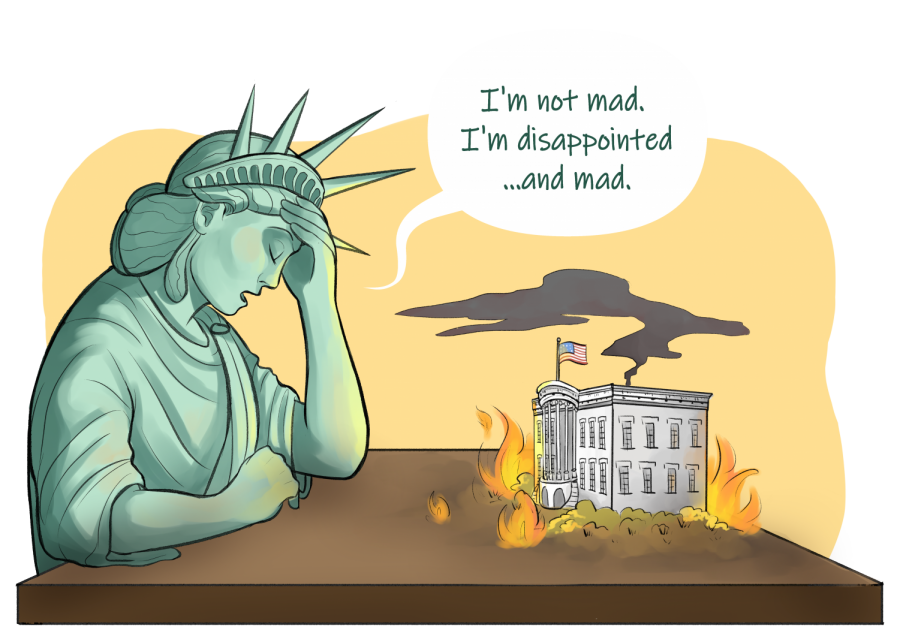Students reflect on impacts, new precedents of the 2020 election
Citing claims of voter fraud, President Trump has yet to concede, leaving many uncertain as to whether the president will willingly leave office in January.
When Mia Basu watched Kamala Harris take the stage in Wilmington before the victory speeches, waves of pride and relief washed over her. Along with many other SJS community members, she had anxiously awaited the results since election night four days prior.
“Seeing Kamala Harris, an African-American and Indian-American woman, up there on stage was incredibly inspiring,” Basu, a freshman, said. “It signaled to girls and people of color across the country that the sky is the limit.”
This year, with historic voter turnout on both sides, the country has elected Joe Biden, the oldest president in history. His running mate, Kamala Harris, is the first female and person of color to be Vice President-Elect.
Major media networks such as CNN and Fox News have named Joe Biden as President-Elect, but fraud allegations have caused some to question the results’ legitimacy. History Department Chair Russell Hardin said that the careful nature in which ballots are stored and counted and the lengths that states have gone to ensure transparency render such widespread fraud unfeasible.
“The chance of [zero] out of 140 million votes being fraudulent is very low,” Hardin said, “but ‘widespread voter fraud,’ a term that we’re hearing thrown out a lot, is just not a possibility.”
Citing claims of voter fraud, President Trump has yet to concede, leaving many uncertain as to whether the president will willingly leave office in January.
“I also can’t help but wonder how things are going to go down,” Basu said. “For the next couple of months, I’m going to be worrying if a peaceful transition of power is going to occur.”
Others say that Trump’s withholding a concession is mere “rhetoric” and that the president will ultimately leave office amicably.
“The president’s refusal to concede is just Trump being Trump,” said senior Owen Butler, who identifies as conservative. “He’s denying that he’s going to leave while at the same time making preparations for the end of his administration.”
Although Biden and Trump nabbed the lion’s share of the votes, nearly two million Americans voted for Jo Jorgensen, the Libertarian Party’s nominee. Senior Pierce Glanville, president of the Young Libertarians Club, appreciates her economic policies and says that America’s “binary political structure” undermines the candidacy of third-party contenders.
“Our current two-party system doesn’t represent a lot of Americans,” Glanville said. “You’re not choosing who you like the best; you’re choosing who you hate the least.”
The ongoing Senate races in Georgia will decide the extent to which Biden can follow through with his campaign promises. Hardin said that, regardless of the outcomes, Biden will likely rejoin the Paris Climate Agreement and address the status of Dreamers, or immigrant youths brought into the United States, early in his presidency.
“As a person of Mexican descent, it was very difficult to hear our president demean Latinos and hear others cheer his hateful language,” freshman Alexandra Madrid said. “Hopefully, going forward, we can put aside the divisive rhetoric.”
With continuing political conversations on both sides, Hardin advises students to support any claims with factual sources and enter discussions to learn and find common ground.
“Regardless of what end of the political spectrum you’re on, tone matters,” Hardin said. “The purpose of political discourse is not necessarily to change someone’s mind, but to know by the end that each person has been heard and respected and has had a chance to validate where they’re coming from.”

Ella Piper Claffy ('24) joined The Review in 2020 as a freshman. She frequently draws anatomically accurate whales and has a special affinity for the...




